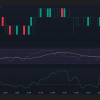
7.3
Coinbase
Buy, trade, and hold 150+ cryptocurrencies on CoinBase
The exchange provides you with a platform that matches your trades with open orders from other users of our services at your direction. Users are not able to predetermine a trade with a particular user or with a particular account. Additionally, an order may be partially filled or may be filled by multiple matching orders.
VISIT
New users only

Coinbase
7.3/10
Cryptocurrency News
10 hours ago
Cryptocurrency Guides
2 years ago
Guru Investing is an independent source of information about investing , not controlled by any broker. All our reviews and guides are created honestly, according to the best knowledge and judgement of the members of our independent expert team; however, they are intended for informative purposes only and should not be construed as, nor relied upon as, legal advice. You should always make sure that you meet all regulatory requirements before making any financial operations . Copyright ©2024
Email for contact [email protected]






















